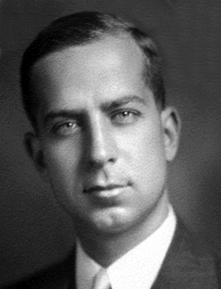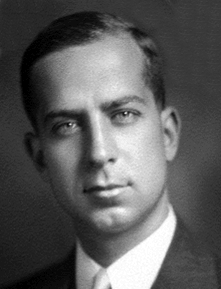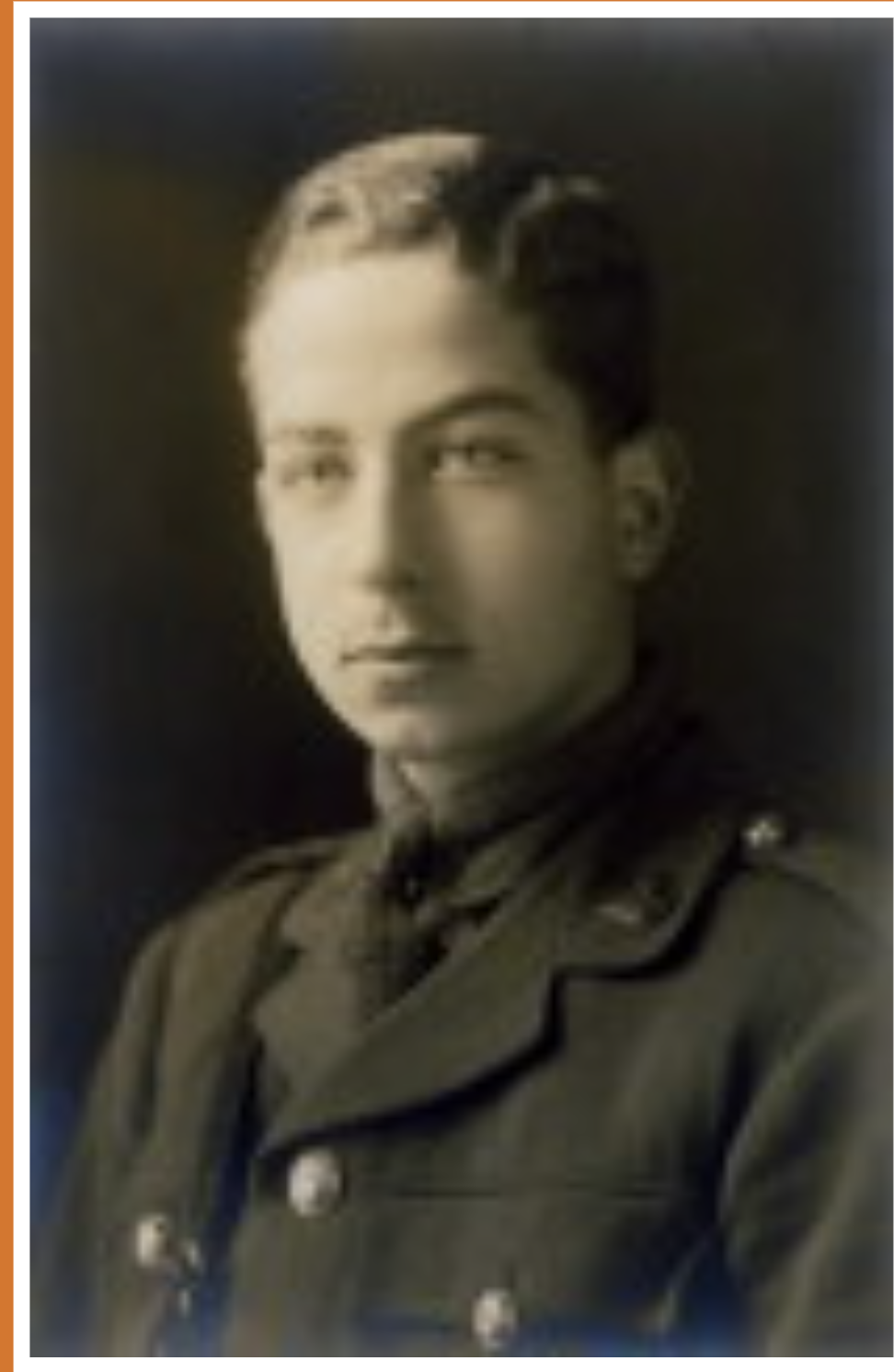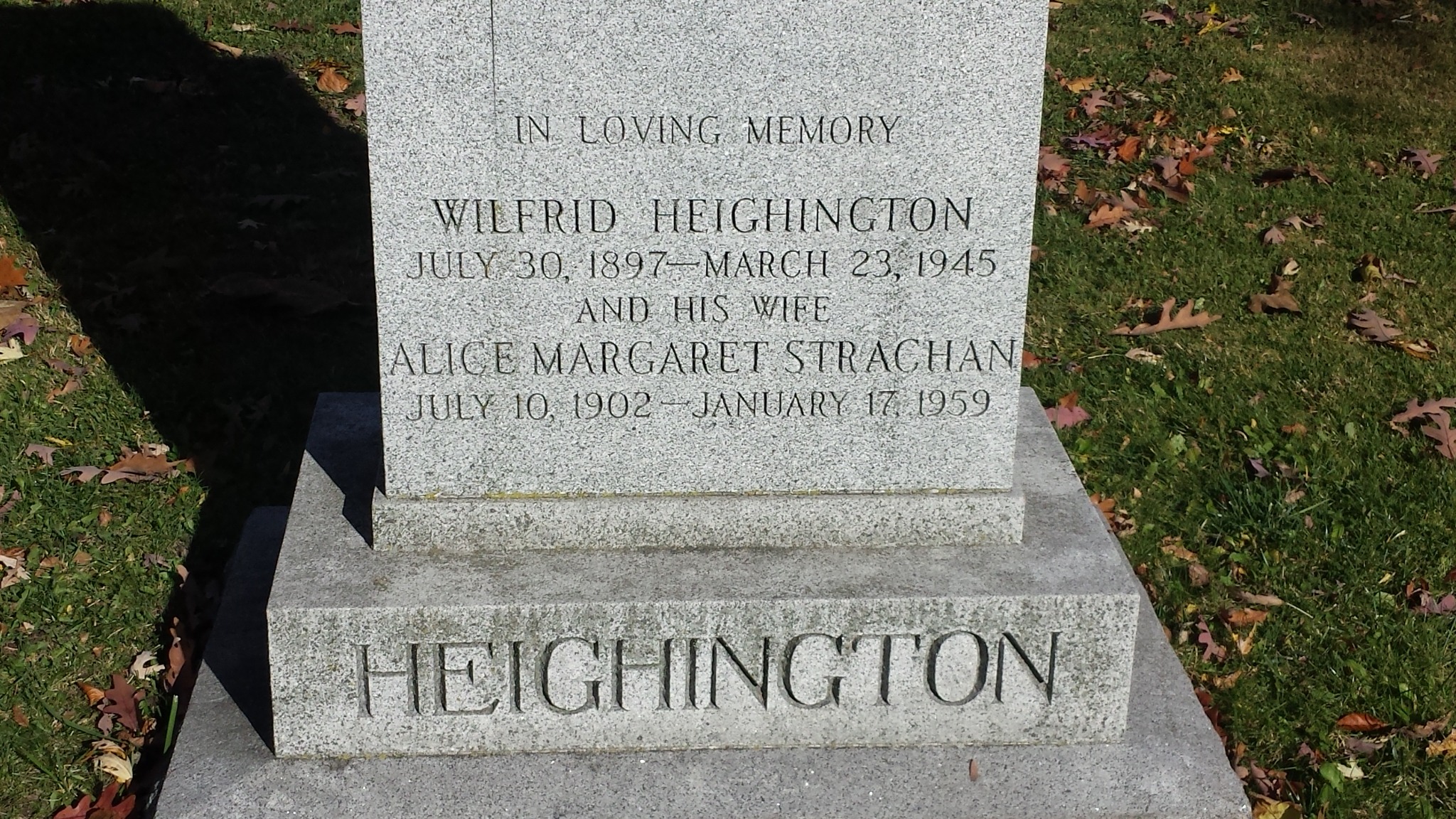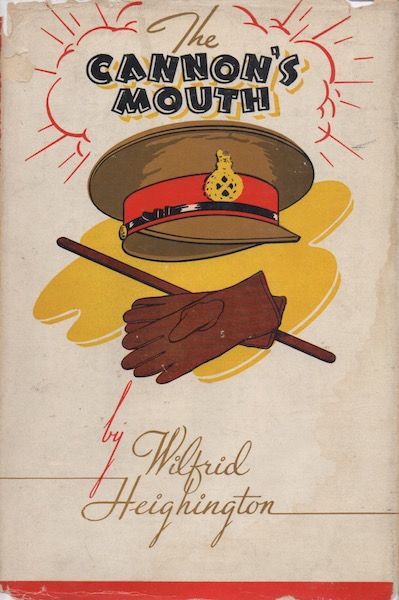No.1104, Wilfrid Heighington, K.C.
"So many ex-cadets have achieved outstanding success in the Army that one tends to be rather blasé when reading about the accomplishments of General Whosit, no matter how valorous or honourable his career may be. The name of these splendid men is legion and it is for that reason that we are not perhaps so impressed as we should be with their brilliant records. But the pioneer ex-cadet in public service is No. 1104, Wilfrid Heighington, who is only 41 years of age today. This is remarkable in itself but his versatility has enabled him as well to carve out niches of no inconsiderable size in the fields of law, authorship, and what is most important to him, war service.
Heighington left RMC during his course in 1915 to take a commission in the 35th Battalion C.E.F. In March, 1916, he joined the famous 20th Battalion. He was one of the first men in his class to hear a shot fired in anger and his service on the field of battle was exemplary, being twice wounded and twice mentioned in despatches. That old war ditty Mademoiselle from Bully Grenay has no pleasant connotations for Wilfrid Heighington, because it was at that historic French town that a brother officer pulled the pin from a defective Mills bomb a few feet away from him, blowing the officer to perdition and wounding Heighington to such an extent that he had the unpleasant experience a few days later of having a Medical Officer pull a sheet over his face and say it was no use.
Months later [after being in leave in London]...Captain Heighington returned to France. St. Eloi, 1916; the Somme, 1916; Vimy, 1917, and Hill 70, 1917, were some of the engagements in which he played a valiant part. Heighington's brother officers in the old 20th are loud in their praises of his bravery under fire, his consideration for his men and his absolute insistence on doing the hard things himself.
For the few years after the war, Heighington gradually built for himself a reputation as one of Ontario's most able and brilliant young counsels. He was appointed a King's Counsel in 1931, in defiance of the statute that provides that a King's Counsel must have been fifteen years at the Bar. Heighington was called to the Bar in 1920. In 1929, at the age of 32, Heighington was elected to the Ontario Legislature as the Conservative member for St. David's Riding in Toronto. For the next five years he sat on the government side of the house and in 1934 was re-elected, although a political landslide brought about the defeat of the government, including many Cabinet Ministers. In eight years as a legislator, Heighington acquired a reputation as a skilled debater and parliamentarian; (Premier Mitchell Hepburn has often referred to him facetiously as the Minister of Rules and Regulations) a fearless, independent fighter for what he knew was right, irrespective of political expediency and, to be anticlimactic, the best-dressed member of the Legislature. It was his stand on an issue that he knew was right, though not politically popular, that brought about his defeat by a scant margin in 1937. Not content with his political duties and the earnest business of making a living, he has still found time to do a good deal of writing. Many of his articles and poems have appeared in Saturday Night, the Toronto Star Weekly, the Canadian Defence Quarterly, the Canadian Bar Review, and, mirable dictu, the Canadian Churchman. Several of the best of these were issued in book form in 1934 under the title Whereas and Whatnot which includes an article on RMC and a poem, acknowledged by all lawyers to be a classic, The Lawyer Who Could Not Pronounce Certiorari. The book has had a wide sale and is in its second edition.
Soldier, Advocate, Solon, Author and Poet, it may conservatively be said of Wilfrid Heighington that he is one of the College's brightest lights and an ornament to the institution where he first heard the phrase 'Stretch 'em down and out!'."
This account was submitted by Wilfrid Heighington's grand-daughter, Robin Dickie. Unfortunately, she never met him as he died when her mother was only 15, in 1945.
Heighington was a prolific writer authoring articles and poems for Saturday Night, The Star Weekly and other periodicals, many of which were reissued in a book, Whereas and Whatnot (1934). In 1943, he published the war novel The Cannon's Mouth.[8]
He was still active with the military when he was hospitalized on 17 March 1945. He died due to complications from pneumonia at St. Michael's hospital on the evening of 23 March
No.1104, Wilfrid Heighington, K.C.
"So many ex-cadets have achieved outstanding success in the Army that one tends to be rather blasé when reading about the accomplishments of General Whosit, no matter how valorous or honourable his career may be. The name of these splendid men is legion and it is for that reason that we are not perhaps so impressed as we should be with their brilliant records. But the pioneer ex-cadet in public service is No. 1104, Wilfrid Heighington, who is only 41 years of age today. This is remarkable in itself but his versatility has enabled him as well to carve out niches of no inconsiderable size in the fields of law, authorship, and what is most important to him, war service.
Heighington left RMC during his course in 1915 to take a commission in the 35th Battalion C.E.F. In March, 1916, he joined the famous 20th Battalion. He was one of the first men in his class to hear a shot fired in anger and his service on the field of battle was exemplary, being twice wounded and twice mentioned in despatches. That old war ditty Mademoiselle from Bully Grenay has no pleasant connotations for Wilfrid Heighington, because it was at that historic French town that a brother officer pulled the pin from a defective Mills bomb a few feet away from him, blowing the officer to perdition and wounding Heighington to such an extent that he had the unpleasant experience a few days later of having a Medical Officer pull a sheet over his face and say it was no use.
Months later [after being in leave in London]...Captain Heighington returned to France. St. Eloi, 1916; the Somme, 1916; Vimy, 1917, and Hill 70, 1917, were some of the engagements in which he played a valiant part. Heighington's brother officers in the old 20th are loud in their praises of his bravery under fire, his consideration for his men and his absolute insistence on doing the hard things himself.
For the few years after the war, Heighington gradually built for himself a reputation as one of Ontario's most able and brilliant young counsels. He was appointed a King's Counsel in 1931, in defiance of the statute that provides that a King's Counsel must have been fifteen years at the Bar. Heighington was called to the Bar in 1920. In 1929, at the age of 32, Heighington was elected to the Ontario Legislature as the Conservative member for St. David's Riding in Toronto. For the next five years he sat on the government side of the house and in 1934 was re-elected, although a political landslide brought about the defeat of the government, including many Cabinet Ministers. In eight years as a legislator, Heighington acquired a reputation as a skilled debater and parliamentarian; (Premier Mitchell Hepburn has often referred to him facetiously as the Minister of Rules and Regulations) a fearless, independent fighter for what he knew was right, irrespective of political expediency and, to be anticlimactic, the best-dressed member of the Legislature. It was his stand on an issue that he knew was right, though not politically popular, that brought about his defeat by a scant margin in 1937. Not content with his political duties and the earnest business of making a living, he has still found time to do a good deal of writing. Many of his articles and poems have appeared in Saturday Night, the Toronto Star Weekly, the Canadian Defence Quarterly, the Canadian Bar Review, and, mirable dictu, the Canadian Churchman. Several of the best of these were issued in book form in 1934 under the title Whereas and Whatnot which includes an article on RMC and a poem, acknowledged by all lawyers to be a classic, The Lawyer Who Could Not Pronounce Certiorari. The book has had a wide sale and is in its second edition.
Soldier, Advocate, Solon, Author and Poet, it may conservatively be said of Wilfrid Heighington that he is one of the College's brightest lights and an ornament to the institution where he first heard the phrase 'Stretch 'em down and out!'."
This account was submitted by Wilfrid Heighington's grand-daughter, Robin Dickie. Unfortunately, she never met him as he died when her mother was only 15, in 1945.
Heighington was a prolific writer authoring articles and poems for Saturday Night, The Star Weekly and other periodicals, many of which were reissued in a book, Whereas and Whatnot (1934). In 1943, he published the war novel The Cannon's Mouth.[8]
He was still active with the military when he was hospitalized on 17 March 1945. He died due to complications from pneumonia at St. Michael's hospital on the evening of 23 March
Inscription
In Loving Memory
Wilfrid Heighington
July 30, 1897 -- March 23, 1945
and his wife
Alice Margaret Straghan
July 10, 1902 -- January 17, 1959
HEIGHINGTON
Family Members
Sponsored by Ancestry
Advertisement
Records on Ancestry
Advertisement
